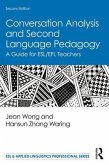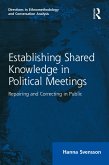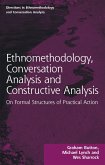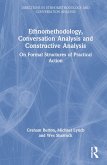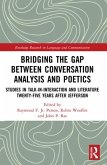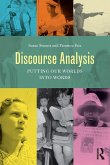This book argues that many of the most prominent features of oral epic poetry in a number of traditions can best be understood as adaptations or stylizations of conversational language use, and advances the claim that if we can understand how conversation is structured, it will aid our understanding of oral traditions. In this study that carefully compares the "special grammar" of oral traditions to the "grammar" of everyday conversation as understood in the field of conversation analysis, Raymond Person demonstrates that traditional phraseology, including formulaic language, is an adaptation of practices in turn construction in conversation, such as sound-selection of words and prosody, and that thematic structures are adaptations of sequence organization in talk-in-interaction. From this he concludes that the "special grammar" of oral traditions can be understood as an example of institutional talk that exaggerates certain conversational practices for aesthetic purposes andthat draws from cognitive resources found in everyday conversation. Person's research will be of interest to conversation analysts as well as literary scholars, especially those interested in ancient and medieval literature, the comparative study of oral traditions and folklore, and linguistic approaches to literature. This volume lays the groundwork for further interdisciplinary work bridging the fields of literature and linguistics.
"Raymond Person's From Conversation to Oral Tradition is a rare book that synthesizes recent findings of Conversation analysis (CA), and brings them alive in the study of oral traditions. Conversation analysis has been guided by its vision of face-to-face interaction as a bedrock for human social life, and Person shows that insights from basic principles of social interaction can bring us a new grasp of underlying patterns of oral narratives. In that way, oral narratives are given a new life by opening up the tacit systematics of talk hidden beneath the surface of narratives." -Ilkka Arminen, Department of Social Sciences, University of Helsinki, Finland
"This book is a fascinating introduction to a field that can support any scholar of biblical narrative traditions. It will be especially helpful to anyone studying the Pentateuch, the historical books, or the Gospels and would be useful in any doctoral seminar." - Michael R. Simone, S.J., Boston College School o f Theology and Ministry, USA
"This book is a fascinating introduction to a field that can support any scholar of biblical narrative traditions. It will be especially helpful to anyone studying the Pentateuch, the historical books, or the Gospels and would be useful in any doctoral seminar." - Michael R. Simone, S.J., Boston College School o f Theology and Ministry, USA


